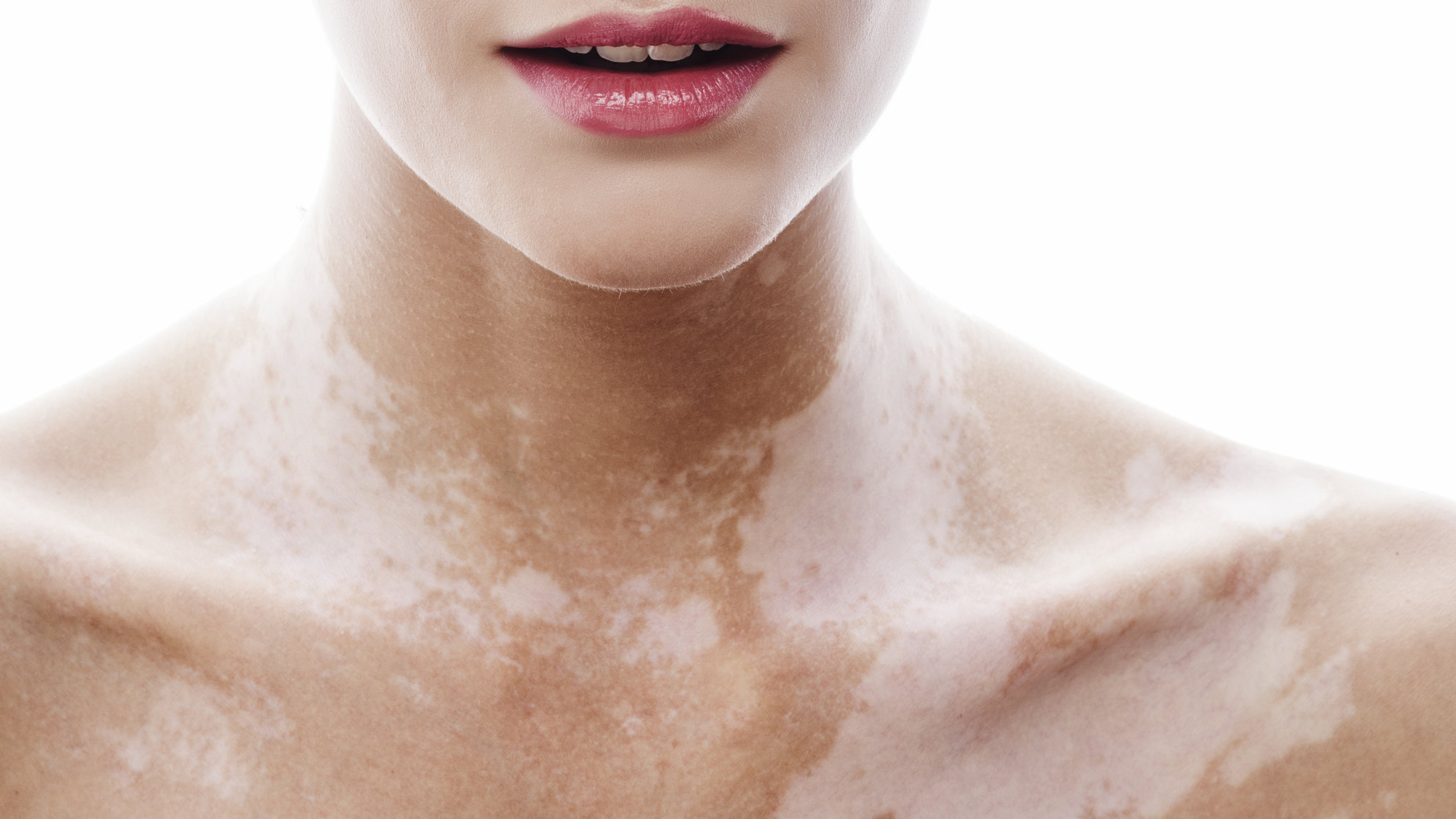
The color of your skin, hair, and eyes comes from a pigment called melanin, which is produced by cells called melanocytes. The skin disorder vitiligo, characterized by white patches of skin, happens when these melanocytes stop functioning.
“Vitiligo is a loss of pigment in the skin due to the destruction of pigment-forming cells called melanocytes,” says Michele S. Green, MD, a dermatologist with Lenox Hill Hospital in New York City.
The result is blotchy, uneven patches of white skin where the melanocytes have been destroyed. Vitiligo can affect not only your skin but your hair (including your eyebrows and eyelashes), the inside of your mouth and nose, and your retinas.
No one knows exactly what causes vitiligo, and there’s no cure for the skin condition either, but treatments are getting better. And the more we learn about the causes of vitiligo, the better treatments will become. Here’s what we know about vitiligo causes so far.
Immune system issues
Scientists believe that autoimmunity plays a role in vitiligo. That’s when your immune system mistakenly identifies a part of your body—in this case the cells called melanocytes—as foreign and starts to attack them. People with other autoimmune diseases, specifically Hashimoto’s disease (which affects the thyroid gland) and alopecia (which makes hair fall out), are more likely to get vitiligo as well.
“Vitiligo is thought to be some autoimmunity resulting in damage and eventually killing of these cells,” says Henry W. Lim, MD, former chair of dermatology at Henry Ford Hospital in Detroit.
In particular, experts think that a type of vitiligo called nonsegmental vitiligo may be autoimmune-related. Nonsegmental vitiligo only damages the melanocytes on one side of your body.
So far, though, the links between vitiligo and other autoimmune disorders is just an association. We can’t say one causes the other. And treatment for another autoimmune disease usually doesn’t help vitiligo.
“We routinely check for thyroid function in people with vitiligo,” says Dr. Lim. “But treatment for Hashimoto’s would not affect the vitiligo.”
Heredity
Vitiligo can run in families, but it’s actually not as common as you might think. “In the vast majority of vitiligo cases, there is no family history,” says Dr. Lim, who is also past president of the American Academy of Dermatology. While many people wonder if vitiligo is hereditary, it’s not yet possible to predict if you’ll develop vitiligo based on family members with the condition.
Autoimmune diseases in general, however, seem to have a genetic component.
Physical trauma
In some people, physical trauma or stress to the skin like a sunburn or exposure to industrial chemicals seems to trigger vitiligo, or at least precedes it.
Vitiligo can appear exactly on the sites where there has been some kind of injury. “Exactly why that is the case is not known,” Dr. Lim says.
Emotional stress
Like physical stress, psychological distress also seems to play a part in aggravating vitiligo, as is the case with many other skin conditions as well. Again, this relationship isn’t entirely understood.
What is known is that vitiligo, while not contagious or life-threatening, also causes significant emotional pain. “The effect is noticeable and quite disfiguring and, as you can well understand, it is psychologically very disturbing,” says Dr. Lim.
Oxidative stress
Oxidative stress is an imbalance in certain types of compounds—free radicals and antioxidants—involved in different physiological processes. The imbalance can be caused by exposure to UV rays, pollutants, or other environmental factors. The areas of your body that are affected by vitiligo are known to be the most vulnerable to oxidative stress.
“We all get oxidative stress in our skin, but those with vitiligo are much more susceptible,” says Dr. Lim. “This has been the greatest advancement in our understanding of vitiligo. We have a much better understanding of the molecular pathways of vitiligo and why these cells get killed.”
This may pave the way for breakthroughs in treatment as scientists work on developing molecules that will block that pathway. “Significant improvements [in treatment] will be coming out in the next few years,” Dr. Lim says.


























1 thought on “5 Things That Can Cause Vitiligo”
I have modest vitiligo on my hands and legs but it has been suggested by my Dermatologist that my burning genital area at night, very white, is caused by vitiligo. No medicine is effective so far.
I also have Hasimoto’s thyroid as did my identical twin.
She died two years ago of colon cancer, misdiagonosed as hemmorhoids. She also had phemigus.
I am having a terrible time with my eyes now which burn, cannot adjust to various conditions, internet, glare, etc.
I am 92 years old and ready to leave this volatile world ASAP after I finish my last study.
I have a PhD in art history from Harvard.